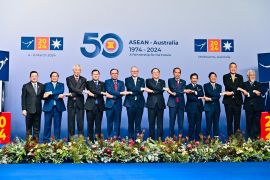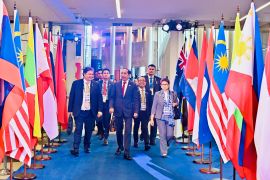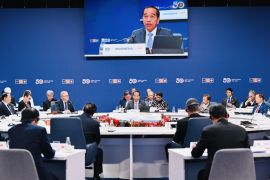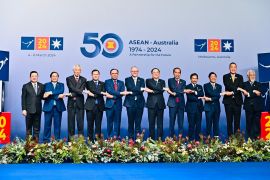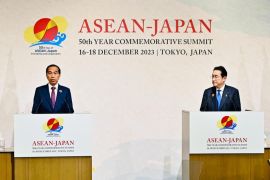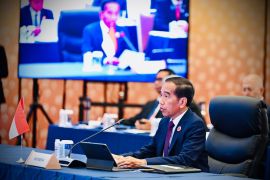On the other hand, the economic downfall faced by the United States and European Union has prompted countries that used to lean on them as their traditional export markets to find other trading partners.
Looking at the current situation, ASEAN as a growing community in Asia is expected to be able to catch the momentum and increase trade relations with the new economic powers such as China, India and South Korea.
"But it must be noted that ASEAN need to maintain its netrality. Trade relation with traditional partners such as the European Union and the US need to be maintained," an economic observer from the Institute for Development of Economics and Finance (INDEF) Fadhil Hasan said.
Fadhil also reminded ASEAN, in the spirit of increasing trade relation with emerging powers, not to let itself function only as a huge market for the marketing of products from the partnering countries.
"ASEAN need to penetrate its products into Asia`s growing market. It must balance the spirit of increasing trade relation with other countries and improving domestic industry as an effort to increase competitiveness," he said adding that strong domestic industry would improve ASEAN product`s competitiveness in the world trade.
Fadhil said there were steps that can be done to strengthen ASEAN`s industry namely increase added value of the products and improve the region`s infrastructure and labor quality.
He said governments and other stakeholders in ASEAN need to work together to make use of the world`s economic shift of power and avoid being considered as only a huge market for its partnering countries.
Meanwhile, Secretary to the National Economic Committee (KEN) Aviliani said Indonesia as one of the most populous country in ASEAN need to set up a more strict rules for import products from emerging economic power such as China.
"Investment from China need to be able to absorb more local labors and has the transfer of technology element in it. Apart from that, ASEAN need to improve itself to be able to attract investors," she said.
China as Biggest Partner
Currently China is ASEAN`s biggest trading partner with a total bilateral trade between the two sides in 2010 reaching US$230 billion.
"ASEAN`s trade with China reached a total value of 230 billion US dollars last year, making China the largest trading partner of ASEAN today," said Indonesian Deputy Trade Minister Mahendra Siregar.
He said during 2010 the total value of ASEAN exports to China reached 113.5 billion US dollars, up 39.1 percent from a year earlier while ASEAN imports from China totaled 117.7 billion US dollars, up 21.8 percent from 2009.
ASEAN`s overall trade balance with China experienced a slight deficit last year, as for Indonesia-China trade recorded a pretty large deficit value of 4.73 billion US dollars in 2010.
The trade imbalance which emerged after the ASEAN-China free trade agreement was adopted disturb the survival of the domestic industry players, mainly small and medium industries in Indonesia.
Earlier, China had offered to help resolve the trade imbalances that had arisen after the implementation of the ASEAN-China free trade agreement.
"China has expressed readiness to facilitate increased market access for ASEAN exporters who want to enter the China market, especially small and medium businesses, as competition to enter the Chinese market is very tight and requires facilitation," he said.
The assistance provided by China, namely in the form of soft loans for infrastructure improvements for ASENA member countries.
According to Ministry of Commerce`s official data, by 2008 Japan was still ASEAN`s largest trading partner with total trade value of 211.7 billion U.S. dollars.
China was the third largest ASEAN trading partner after Japan and the European Union with a total trade value reached 192 billion U.S. dollars or 11 percent of ASEAN`s total trade with outsiders. (*)
Reporter: Amie Fenia Arimbi
Editor: Aditia Maruli Radja
Copyright © ANTARA 2011
